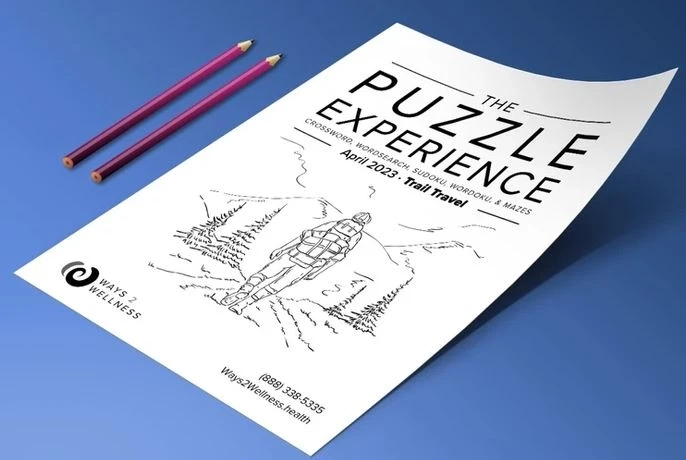Dementia is a condition that affects millions of individuals worldwide, causing memory loss, cognitive decline, and challenges in communication. As we strive to enhance the quality of life for people with dementia, innovative approaches are emerging to provide meaningful engagement and cognitive stimulation. Among these approaches, activity books for seniors have gained prominence for their ability to captivate and stimulate learners, promoting cognitive function, creativity, and emotional well-being.
In this blog, we will explore the fascinating ways in which activity books engage learners with dementia:
The Importance of Engaging Activities For Seniors
Engagement plays a pivotal role in the well-being of individuals living with dementia. Maintaining an active and stimulated mind becomes increasingly challenging as cognitive abilities decline. Activity books, designed with interactive elements, provide a bridge to connect with the world around them. These books offer a safe space for self-expression, creativity, and reminiscence, allowing individuals to engage meaningfully.
Stimulating the Senses: A Multisensory Experience
One of the remarkable aspects of activity books is their ability to engage multiple senses simultaneously. The activity books enable seniors to explore various activity books and essentials. These books create a holistic and immersive experience by activating multiple senses, triggering memories and emotions that might otherwise remain dormant.
Promoting Cognitive Function
Activity books are designed to challenge the mind, encouraging cognitive function and mental agility. Puzzles, word games, and memory exercises featured in activity books stimulate various cognitive areas, including problem-solving, attention, and language skills. For learners with dementia, these activities provide a gentle workout for the brain, potentially slowing cognitive decline and enhancing cognitive reserve.
Fostering Creativity and Self-Expression
Dementia can sometimes lead to frustration due to communication difficulties. Activity books provide an outlet for creative expression, allowing individuals to communicate thoughts, feelings, and ideas through art, coloring, and crafting. Creating something tangible fosters a sense of accomplishment and empowerment, boosting self-esteem and emotional well-being.
Embracing Reminiscence Therapy Along With Activity Books
Reminiscence therapy is a powerful technique that taps into long-term memories and experiences. Activity books often include prompts that evoke memories from different phases of life, encouraging individuals to share stories and anecdotes. This process helps strengthen connections with the past and promotes social interaction and communication.
Personalized Engagement: Tailoring to Individual Interests
The activity books stand out by providing a range of themes and activities that cater to individual interests. Personalized engagement is vital when working with individuals with dementia, as it ensures a higher level of involvement and enjoyment. Whether it’s a book about sudoku or other engaging games, it should suit seniors.
Fostering Social Interaction
Loneliness and isolation are common challenges faced by individuals with dementia. Activity books can catalyze social interaction, providing opportunities for group activities or one-on-one engagements with caregivers, family members, or peers. Joint participation in activities from the book promotes bonding, communication, and a sense of belonging.
Enhancing Emotional Well-Being
Engaging in creative and enjoyable activities has a positive impact on emotional well-being. Activity books provide a source of joy, accomplishment, and fulfillment, which can lead to reduced anxiety and improved mood. Completing a puzzle, coloring a picture, or sharing a story can generate a sense of happiness and contentment, contributing to an overall sense of well-being.
Final Words
Activity books have proven valuable tools in engaging learners with dementia, providing a wide array of cognitive, emotional, and social benefits. The activity books exemplify the power of interactive engagement, creating a world of exploration, reminiscence, and self-expression.
As we continue exploring innovative approaches to enhance the lives of individuals with dementia, activity books stand as a beacon of hope, fostering connections, creativity, and well-being in the face of cognitive challenges.


